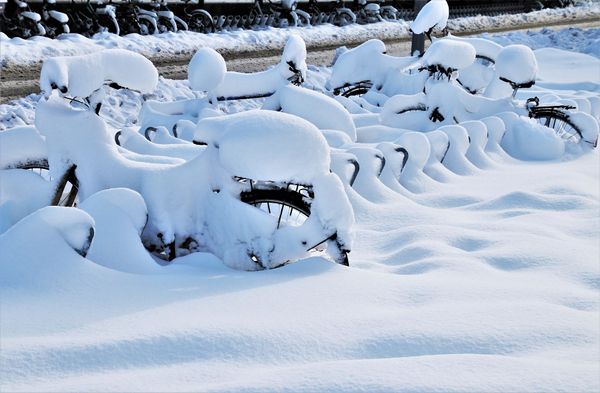How We Talk About the Past, Present, and Future
For the most part, we use past tenses to talk about the past, present tenses to talk about the present, and future tenses to talk about the future. However, tense names don’t match with their time references as conveniently all the time, and there are some other structures to consider.
If you’d like to skip some of the details and get your information in chart form, skip to the end.
Talking About the Past
Talking about the past is done with past tenses, present tenses, used to and would. See the examples:
Simple Past
It was wonderful.
They timed it right.
Practice using this tense with Simple Past Conversation Questions and Irregular Simple Past Conversation Questions.
Past Continuous
We were dancing for hours.
The crowd was cheering.
Get practice using this tense with these Past Continuous Conversation Questions.
Past Perfect
They had finished the cake.
We had met several times before.
Practice using this tense with these Past Perfect Conversation Questions.
Past Perfect Continuous
We had been working for hours.
Gina had been living in London.
There are discussion questions for this tense here: Past Perfect Continuous Conversation Questions.
In the following two perfect tenses, the speaker is talking about completed events that took place within a period that is unfinished.
Present Perfect
I’ve finished my homework.
Fido has been fed.
Practice using this tense with these Present Perfect Conversation Questions.
Present Perfect Continuous
I've been napping.
It has been snowing.
Practice using this tense with these Present Perfect Continuous Conversation Questions.

Used To and Would
I used to sleep in a treehouse.
We would play in the rain in those days.
Practice using these two expressions with Used To & Would Past Conversation Questions.
Talking About the Present
To talk about the present in English, we use present tenses and, occasionally, will. See the examples below.
Simple Present
I read every day.
Canada is north of here.
Answer questions in this tense with Simple Present Conversation Questions.
Present Continuous
He’s doing his homework.
The summers are getting more humid.
The first section of these questions refers to the present: Present Continuous Conversation Questions.
In the next two examples, a present perfect tense refers to an ongoing situation.
Present Perfect
We’ve known each other for years.
Present Perfect Continuous
I’ve been walking for hours.
Will
Every time there is a football game, I’ll prepare my snacks and drinks beforehand. I’ll lay them out in the fridge and on the counter, so it’s easy to grab them.
I don’t teach this way of using will to talk about repeated or usual actions, but it's good to know about in case a student asks.
Talking About the Future
We talk about the future with several different terms, future tenses, and present tenses.
Going to
We’re going to buy a PlayStation.
He’s going to be late.
Will / Won’t
I’ll carry that.
He won’t be any trouble.
You can practice both going to and will with these Simple Future Conversation Questions.
Shall /Shan’t
Then I shall join you.
When shall we leave?
In the two examples below, present tenses are used to talked about a scheduled event and an arranged plan, respectively.
Present Simple
The movie starts at 9pm.
Present Continuous
We're meeting her at 8:30 tonight.
The questions in the bottom section here refer to the future: Present Continuous Conversation Questions.
Future Continuous
We’ll be wrapping gifts in the evening.
I’m going to be lying on a beach by then.
Practice this tense with these Future Continuous Conversation Questions.
Future Perfect
I will have arrived by that time.
There are Future Perfect Conversation Questions here.
Future Perfect Continuous
They will have been living there for a decade next month. They moved there in 2013.
Take a look at the Future Perfect Continuous Conversation Questions set.
Am/Is/Are + Verb Infinitive
He isn’t to eat after 8:30pm.
We are to gather in the lounge.
How We Talk About Time
| Time Reference | Tense or Language | Examples |
|---|---|---|
| Past | Simple Past | It was wonderful. |
| Past Continuous | We were dancing for hours. | |
| Past Perfect | We had met several times before. | |
| Past Perfect Continuous | We had been working for hours. | |
| Present Perfect | I’ve finished my homework. | |
| Present Perfect Continuous | It has been snowing. | |
| Used To | I used to sleep in a treehouse. | |
| Would | We would play in the rain in those days. | |
| Present | Simple Present | I read every day. |
| Present Continuous | He’s doing his homework. | |
| Present Perfect | We’ve known each other for years. | |
| Present Perfect Continuous | I’ve been walking for hours. | |
| Will | Every time there is a game, I’ll prepare my snacks beforehand. | |
| Future | Going To | We’re going to buy a PlayStation. |
| Will | I’ll carry that. | |
| Shall | When shall we leave? | |
| Present Simple | The movie starts at 9pm. | |
| Present Continuous | We're meeting her at 8:30 tonight. | |
| Future Continuous | We’ll be wrapping gifts in the evening. | |
| Future Perfect | I will have arrived by that time. | |
| Future Perfect Continuous | They will have been living there for a decade next month. | |
| Am/Is/Are + Verb Infinitive | He isn’t to eat after 8:30pm. |